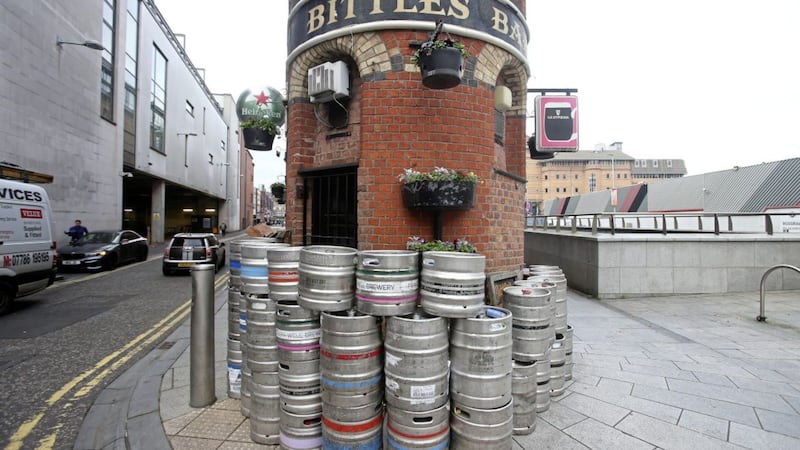Garda murderer Aaron Brady did not react when the Court of Appeal upheld his conviction for shooting dead Detective Garda Adrian Donohoe.
Brady’s family, who have conducted a campaign insisting on his innocence, consoled one another when Mr Justice John Edwards made it clear that the three-judge court had not been persuaded by any of the nearly 50 grounds of appeal.
Wearing a navy suit and pink tie, Brady was quickly returned to the cell area by prison officers following the judgment.
It was, Mr Justice Edwards said, a difficult case and the appeal itself was the longest in the ten-year history of the court.
The court’s decision means that Brady will remain serving his life sentence with a minimum term of 40 years.
With remission for good behaviour, he will be allowed to apply for parole in February 2048, after he has spent 30 years in prison on the murder conviction.
In August 2020, Brady (33) formerly of New Road, Crossmaglen, Co Armagh was convicted by a jury of the murder of Det Gda Adrian Donohoe during a credit union robbery at Lordship, Bellurgan, Co Louth on January 25 2013.

In Thursday’s 363-page judgment, Mr Justice Edwards dismissed all of the “broad panoply” of issues raised, including an argument by Brady that his trial should have been halted due to the ongoing Covid-19 pandemic.
In their arguments before the court, Brady’s lawyers said their client’s case remained the only one at hearing as the pandemic took hold and it was inappropriate for a jury to determine his guilt or innocence as people were dying from Covid-19.
His counsel, Michael O’Higgins SC, had said it was plausible that the jurors were worried about dying or about others close to them dying, which had deteriorated the quality of their deliberations.
In reply, Brendan Grehan SC, for the DPP, said there wasn’t “an iota of a suggestion never mind evidence” that the jurors felt coerced to come to court and argued that no “unbearable burden” had been placed on them.
The Court of Appeal said that the trial judge, Mr Justice Michael White, had “carefully applied his mind... and was clearly concerned about the unprecedented public health crisis faced by all and its impact on the appellant’s right to a fair trial”.


